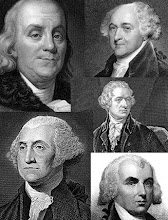 While discussing Perry Noble and his love of the world a blogger made this statement about 2 Corinthians 6:14-17:(source)
While discussing Perry Noble and his love of the world a blogger made this statement about 2 Corinthians 6:14-17:(source)
"your 2 Corinthians 6:14-17 reference is talking about marriage. NOT preaching, NOT methodology."
2 Corinthians 6:14-17 (New American Standard Bible)
14Do not be bound together with unbelievers; for what partnership have righteousness and lawlessness, or what fellowship has light with darkness?
15Or what harmony has Christ with Belial, or what has a believer in common with an unbeliever?
16Or what agreement has the temple of God with idols? For we are the temple of the living God; just as God said,
"I WILL DWELL IN THEM AND WALK AMONG THEM;
AND I WILL BE THEIR GOD, AND THEY SHALL BE MY PEOPLE.
17"Therefore, COME OUT FROM THEIR MIDST AND BE SEPARATE," says the Lord.
"AND DO NOT TOUCH WHAT IS UNCLEAN;
And I will welcome you.
This blogger is trying very hard to defend the carnality and worldliness of Senior Pastor Perry Noble from NewSpring Church. I'm amazed at the hoops many NewSpring defenders will jump through to defend Noble and his rebellion.
Here is a reference that might help explain this passage:
6:14-15. What hampered the Corinthians’ open, loving response, which Paul called for? (v. 13) Answer: rival suitors vied for their affections and allegiance. Though verses 14-15 are often applied to various sorts of alliances (e.g., mixed marriages, improper business associations), Paul’s primary association was probably ecclesiastical. The rival suitors were possibly pagan idolaters (cf. 1 Cor. 10:14) or more likely false apostles (cf. 2 Cor. 11:2-4). In censure or affection Paul was equally candid (cf. 6:11).
The solution to the dilemma was for the Corinthians to separate from the false apostles. Whatever may have been their own and others’ estimation of their spiritual status, Paul considered the false apostles to be unbelievers (cf. 11:13-15) from whom the Corinthians needed to separate. But Paul did not say that Christians should have no contacts whatever with unbelievers. Earlier he argued the absurdity of such a position (1 Cor. 5:9-10). But religious unbelievers might lead believers astray from “sincere and pure devotion to Christ” (2 Cor. 11:3), and the fact concerned Paul greatly. A believer can be rightly yoked only with Christ (Matt. 11:29-30).
To illustrate, Paul asked five rhetorical questions (2 Cor. 6:14-16), posing antitheses that reflect the wide chasm between the kingdom of Christ and the kingdom of Satan (cf. Col. 1:13). Belial (the Gr. Beliar is a spelling variation) transliterates an Old Testament word that means “worthless person.” In Greek it came to mean “a lawless person.” It was then used of Satan, the most worthless and lawless of all.
6:16. Paul’s fifth rhetorical question provided a transition to his citing several Old Testament verses. Their cumulative effect bolstered Paul’s exhortation (v. 14a). The church is the temple of God (cf. 1 Cor. 3:16) where the Spirit of God and Christ dwells (cf. Matt. 28:19-20; Eph. 2:22). The promise of God to live among His people was ultimately fulfilled in Christ (Matt. 1:23).
6:17. Enjoying God’s presence requires personal holiness. Paul cited a portion of Isaiah 52:11 and Ezekiel 20:41, passages that speak of Israel’s redemption. God’s people are redeemed from pagan bondage (come out from them and be separate) in order to be clean before God (touch no unclean thing) and thus enjoy fellowship with Him (I will receive you). In Galatians Paul spoke of the bondage of those who are under the obligation of the Law (Gal. 3:13-14; 4:5; cf. 2 Cor. 3:7-9). Paul wrote to Titus that redemption implied two things: (a) deliverance “from all wickedness” and (b) a purified people who are “His very own, eager to do what is good” (Titus 2:14). Personal purity makes it possible to serve God and be received by Him.[1]
[1]Walvoord, J. F., Zuck, R. B., & Dallas Theological Seminary. (1983-c1985). The Bible knowledge commentary : An exposition of the scriptures (2:570-571). Wheaton, IL: Victor Books.













Do you not read your own posts?
ReplyDelete"was probably" and "more likely"
This hardly denotes that you linking it to preaching is purely solid.
Basic Hermeneutics says that when you have debate about scripture, use clearer passages to prove the point rather than debated passages.
BTW 2 Tim 3:16 doesn't say "All commentaries are God breathed".. stick with The Bible interpreting itself.
I see though that you chose not to comment directly, but to hide your post elsewhere on your site.
Still nothing about Amos I see..
This coming from someone who defends Perry Noble and his foul mouth telling me about sticking to the Bible. Col 3:8 is very clear and you can;t get that one right....so you can stop with your spinning.
ReplyDeleteIt's clear you are the one not interested in any real debate based on your post here and on my YouTube site.
ReplyDeleteI'm done with you completely because your mind is already made up. You are going to defend carnality no matter what Scriptures I provide.